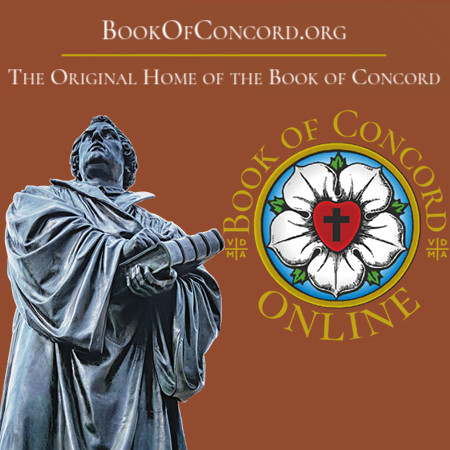ViaCrucis
Confessional Lutheran
- Oct 2, 2011
- 39,904
- 29,605
- Country
- United States
- Gender
- Male
- Faith
- Lutheran
- Marital Status
- In Relationship
- Politics
- US-Others
While I won't say that they can't participate here, I do think belief in the Real Presence, and more generally, a sacramental view, is a major point of demarcation which traditional churches are aligned, in contrast with other types of churches.
I think a belief in the realness of grace in the Sacraments is worth fighting for; because the sacramental is more than just a "perspective on doctrine", it's a world-view that shapes the entire scope of how we practice and engage with our faith--and even how we look at and engage the broader world at large. The God has vested in His creation a sacramental quality whereby created things can share in God's life and divinity by grace.
I was listening to Pastor Jordan Cooper's podcast "Just and Sinner" the other day in which he was speaking about one of the hallmarks of Lutheran Orthodoxy in our affirmation of the Communicatio Idiomatum, the Communication of Attributes between the two natures of Christ; whereby by the union of humanity to Christ's divinity in His Incarnation we affirm and believe that the Divinity communicates attributes with the humanity. The podcast went into a lot of deep Christology, but one of the points Pastor Cooper brought up was that from the Lutheran perspective, in contrast to the Reformed perspective, we believe the finite really can contain, bear, the Infinite: Thus "the fullness of Deity in bodily form" means that the humanity is so fully united to His Divinity that His eternal attributes, such as Majesty, Omnipotence, and Omniscience are truly communicated to His humanity. Here the Lutheran perspective comes into close contact with the Eastern view of the Essence/Energies distinction; such that we do not believe that there is a confusion between the Deity and humanity, but Christ's humanity is fully "deified" by the Divine Energies. This being in sharp contrast of the modern Kenoticist view wherein Christ lost His Divine attributes in the Incarnation, we argue Christ has His Divine attributes even in and through His humanity by the assumption of humanity and the union of humanity to His Divinity.
And, all of this, just to say that this means that, yes, creatures can partake and share in God's life by grace, and the Sacraments mean this very thing, as they are Means of Grace. God's Operative Self is fully present and Self-giving in the Sacraments, and thus His life is diffused into ours. The Infinite God, united to finite humanity; now giving His Full Person, the entire God-Man, to us that we might share and have life in Him, through Him, and by Him.
-CryptoLutheran
I think a belief in the realness of grace in the Sacraments is worth fighting for; because the sacramental is more than just a "perspective on doctrine", it's a world-view that shapes the entire scope of how we practice and engage with our faith--and even how we look at and engage the broader world at large. The God has vested in His creation a sacramental quality whereby created things can share in God's life and divinity by grace.
I was listening to Pastor Jordan Cooper's podcast "Just and Sinner" the other day in which he was speaking about one of the hallmarks of Lutheran Orthodoxy in our affirmation of the Communicatio Idiomatum, the Communication of Attributes between the two natures of Christ; whereby by the union of humanity to Christ's divinity in His Incarnation we affirm and believe that the Divinity communicates attributes with the humanity. The podcast went into a lot of deep Christology, but one of the points Pastor Cooper brought up was that from the Lutheran perspective, in contrast to the Reformed perspective, we believe the finite really can contain, bear, the Infinite: Thus "the fullness of Deity in bodily form" means that the humanity is so fully united to His Divinity that His eternal attributes, such as Majesty, Omnipotence, and Omniscience are truly communicated to His humanity. Here the Lutheran perspective comes into close contact with the Eastern view of the Essence/Energies distinction; such that we do not believe that there is a confusion between the Deity and humanity, but Christ's humanity is fully "deified" by the Divine Energies. This being in sharp contrast of the modern Kenoticist view wherein Christ lost His Divine attributes in the Incarnation, we argue Christ has His Divine attributes even in and through His humanity by the assumption of humanity and the union of humanity to His Divinity.
And, all of this, just to say that this means that, yes, creatures can partake and share in God's life by grace, and the Sacraments mean this very thing, as they are Means of Grace. God's Operative Self is fully present and Self-giving in the Sacraments, and thus His life is diffused into ours. The Infinite God, united to finite humanity; now giving His Full Person, the entire God-Man, to us that we might share and have life in Him, through Him, and by Him.
-CryptoLutheran
Last edited:
Upvote
0


